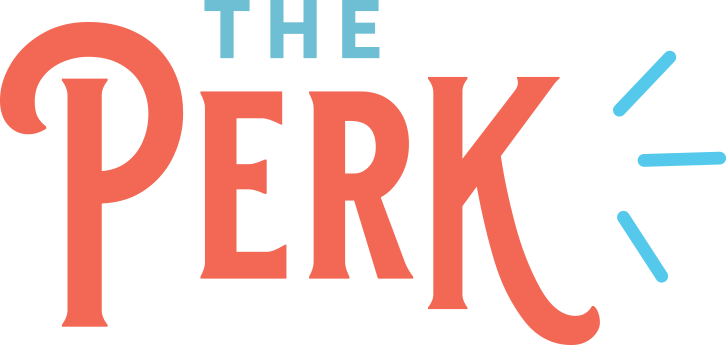The Connection Between Trust & Emotional Intelligence: A Deep Dive into The Perk's Trust by Design Framework
Here at The Perk, we talk a lot about the fact that the leadership skills needed in today’s world have shifted dramatically from those that were prioritized 20-30 years ago. Workplaces are more cross-collaborative & connected than ever, & this means that the human skills of emotional intelligence & trust-building are more desired than ever before. In order to maximize their efficacy & manage team dynamics, leaders must strengthen their EQ & ability to build trust.
And we know through the research that trust doesn't happen by default; it happens by design. Our Trust by Design framework is a simple yet powerful tool that helps build & scale trust within teams. Below we’ll explore the intrinsic connection between trust & emotional intelligence, as well as how our framework leverages this relationship to create high-performing, engaged teams.
Understanding Emotional Intelligence
Emotional intelligence, often abbreviated as EQ, refers to the ability to recognize, understand, manage, & influence one's own emotions & the emotions of others. It encompasses 5 key components:
Self-awareness: Recognizing one's emotions & their impact on decisions or circumstances.
Self-regulation: Managing one's emotions in healthy ways.
Motivation: Using emotions to stay positive & focused.
Social-awareness: Understanding the emotions of others.
Social-regulation: Managing relationships to influence others, build relationships, & resolve conflict.
Why Knowing Your EQ Matters
It's essential to know how you rank in these different areas of emotional intelligence. We like to conduct an EQ assessment with our clients to help them establish a baseline understanding of their strengths and areas for improvement. Unlike static traits, EQ is not something you are born with a fixed amount of—it's a skill you can grow and strengthen over time. Knowing your starting point is crucial, and an EQ assessment is an excellent tool for this purpose.
The Role of Trust in Organizations
Trust is the foundation of any strong organizational culture. It is essential for collaboration, innovation, & overall productivity. Research shows that high-trust companies experience 76% more engagement & 50% higher productivity than low-trust companies. Trust impacts the bottom line more than any other factor, making it the most valuable asset for any business.
The Perk's Trust by Design Framework
Our Trust by Design framework is built around five core trust behaviors: Commit, Celebrate, Be Clear, Connect, & Create Safety. These behaviors are designed to be practical & actionable, making it easier for leaders & teams to cultivate trust intentionally.
Commit: We trust people who do what they say they will do. This requires self-regulation & motivation, key components of EQ, to follow through on commitments & manage expectations realistically.
Celebrate: Recognizing & appreciating the contributions of others fosters a positive & inclusive environment. In order to do this requires leaders must have social-awareness & social-regulation. These skills enable leaders to authentically understand how individuals like to be celebrated & valued.
Be Clear: Clear communication is fundamental to building trust. Ambiguity is often an accelerator in the breakdown of trust among teams, & leaders need both self-awareness & social-regulation to convey messages in a straightforward way.
Connect: Emotional & psychological safety are a must if leaders want to create or strengthen relationships with their teams. Leaders with high EQ are adept at creating meaningful connections, understanding the emotional needs of their team members, & fostering an environment where everyone feels safe to speak up & be themselves.
Create Safety: A nonjudgmental space where team members feel safe to express themselves is essential for trust. This behavior relies heavily on social-awareness & self-regulation, enabling leaders to hold space for others' emotions & provide support without judgment.
Trust & Emotional Intelligence Go Hand in Hand
Trust & emotional intelligence are deeply interconnected. High EQ enables leaders to build & maintain trust through consistent, empathetic, & transparent daily behaviors. When leaders exhibit high levels of EQ, they can better understand & respond to the emotional needs of their team, fostering an environment of trust & safety.
Conversely, a culture of trust enhances emotional intelligence within a team. When team members feel trusted, they are more likely to express their emotions openly, seek feedback, & engage in honest communication. This mutual reinforcement creates a virtuous cycle, leading to higher engagement, productivity, & overall job satisfaction.
Practical Applications of Trust by Design
Guess what? You can implement the Trust by Design framework to transform team dynamics & organizational culture! Here are a few practical tips:
Hold regular check-ins: Use these meetings to reinforce commitments, celebrate achievements, & ensure clarity in communication.
Create safe spaces: Encourage open dialogue & provide platforms for team members to express their thoughts & feelings without fear of judgment.
Recognize & celebrate: Tailor your recognition efforts to the preferences of your team members, making them feel valued & appreciated.
Not only are trust & emotional intelligence complementary, they are essential for creating thriving, high-performing teams. By leveraging The Perk's Trust by Design framework, leaders can intentionally build trust, foster emotional intelligence, & drive their teams toward greater success & fulfillment.
To learn more about our Trust by Design framework & how you can implement it within your organization, connect with a Perk coach !
Pssst...I LOVE connecting with & growing my community! Feel free to connect with me on LinkedIn - see you there! 🤗



